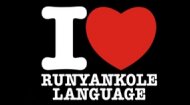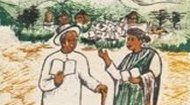
|
|
Uglish Explained |
Uglish Explained |
Uglish Explained |
Uglish Explained |
Uglish Explained |
|
|

|
Uglish, the local variation of English spoken throughout Uganda, is far more than simply a dialect; it is a linguistic identity forged through history and cultural fusion. Originating from the British colonial administration, English was established as the official language, but over the decades following independence, it naturally adapted to the rhythms, syntax, and vocabulary of the numerous local Bantu languages. This evolution resulted in Uglish, a form rich in local flavour, characterised by unique idiomatic expressions, distinct pronunciation patterns, and grammatical structures that sometimes deviate significantly from Standard English, yet remain perfectly clear and mutually understood within the country. The use of Uglish permeates every aspect of daily life, from casual market interactions to formal business communication. While Standard English is taught in schools, it is Uglish that truly oils the gears of society. Phrases like "tight corner" (meaning a difficult situation), or the common use of "extend" when asking someone to move over, demonstrate how local needs have reshaped the language for greater efficiency. This localised English is essential for navigating the bustling cities like Kampala, where speakers often code-switch between English, Luganda, and Swahili. Furthermore, mastery of Uglish is often a prerequisite for obtaining successful employment, particularly in administrative and service-oriented roles where direct, clear, and vernacular-appropriate communication with clients is necessary. Uglish is particularly crucial within the flourishing hospitality sector, serving visitors exploring the nation's diverse landscapes. Tour guides rely on this shared language when directing guests to major tourist attractions like Bwindi Impenetrable National Park or the source of the Nile. It bridges the gap between international visitors and local Ugandans working in various types of accommodation, from high-end resorts and city hotels to smaller, family-run guesthouses. For instance, a common Uglish request might be, "You are carrying a lot of luggage, let me escort you to your room," where "escort" simply means to accompany or guide. Perhaps the most interesting facts about Uglish relate to its economy of words and directness. Unlike the often polite and indirect nature of British English, Uglish tends to be concise and functional. For example, the use of "I am coming" is a widely understood substitute for "I will be back soon" or "Wait for me," regardless of the speaker's true distance from the listener. This language reflects the country’s ingenuity and warmth, showcasing how a borrowed tongue can be successfully moulded to express the unique culture and personality of the Pearl of Africa. |








